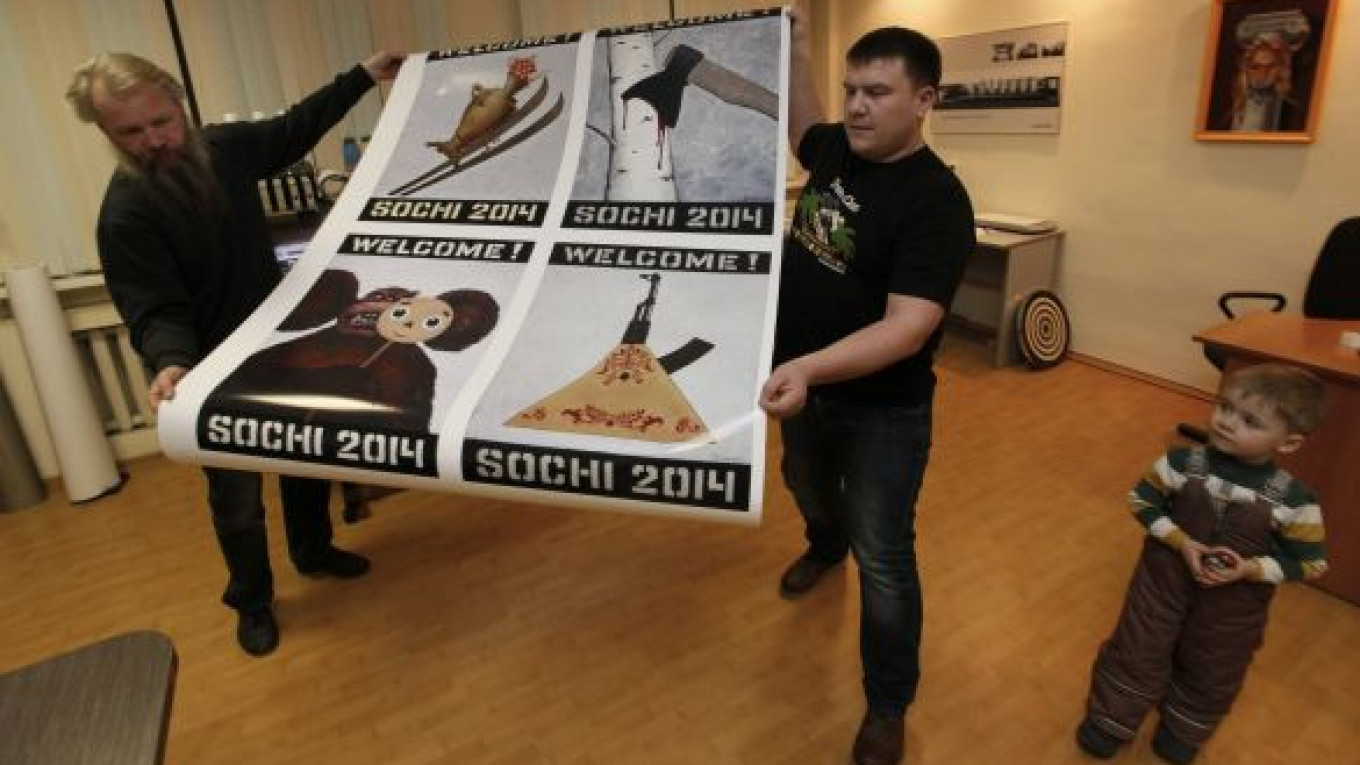LAUSANNE, Switzerland — The IOC is finalizing a letter to Olympic athletes reminding them to refrain from demonstrations or political gestures during the Winter Games in Sochi, including any protests against Russia's law banning gay "propaganda."
The International Olympic Committee executive board is expected to approve the instructions at its meeting in Lausanne on Tuesday. The letter will then be sent to the national Olympic committees that are sending athletes to the Sochi Games, which run from Feb. 7 to 23.
The memo will focus on Rule 50 in the Olympic Charter, which states: "No kind of demonstration or political, religious or racial propaganda is permitted in any Olympic sites, venues or other areas."
"We will give the background of the Rule 50, explaining the interpretation of the Rule 50 to make the athletes aware and to assure them that the athletes will be protected," IOC president Thomas Bach said.
"I know from my own experience, this is key," added Bach, a former Olympic fencer who won a team gold medal for West Germany in 1976. "As an athlete you do not want to be confronted in the Olympic Village or the Olympic Stadium with any kind of political controversies."
The IOC letter comes amid continuing Western criticism of Russia's human rights record and a recently enacted law that bans promotion of "nontraditional sexual relations" to minors. The issue has raised questions over what would happen to athletes who wear a pin or patch or carry a rainbow flag to show their support for gay rights.
The charter says the IOC can take action against — even expel — athletes who violate Rule 50, but the committee has said the rule would be "interpreted and applied sensibly and proportionately."
"This is about the principles," Bach said. "The principle is to protect the Olympic athletes from being drawn into political controversies. Then, you always have to decide on a case-by-case basis."
Bach, who was elected IOC president three months ago, met with President Vladimir Putin in Sochi in October. He said Putin assured him that there would be no discrimination against any athletes or spectators at the games.
"With regard to the law, he was as clear as he could be," Bach said.
The IOC leader met a week ago in Paris with Russian gay rights activists.
"This meeting for us was to listen but also to explain where our responsibility is on the one hand and, on the other hand, where our influence ends," Bach said. "They understood the position even better, and they appreciated having this conversation. We agreed we will keep in contact."
With the opening ceremony less than two months away, overall preparations for the Sochi Games will be among the top items on the agenda for Tuesday's board meeting. Local organizing committee chief Dmitry Chernyshenko is scheduled to report by video conference.
"They will be ready," Bach said. "There is still some work to do. They know they are under pressure. The last 100 days are almost always the most pressing ones. I have full confidence that they will be ready."
A Message from The Moscow Times:
Dear readers,
We are facing unprecedented challenges. Russia's Prosecutor General's Office has designated The Moscow Times as an "undesirable" organization, criminalizing our work and putting our staff at risk of prosecution. This follows our earlier unjust labeling as a "foreign agent."
These actions are direct attempts to silence independent journalism in Russia. The authorities claim our work "discredits the decisions of the Russian leadership." We see things differently: we strive to provide accurate, unbiased reporting on Russia.
We, the journalists of The Moscow Times, refuse to be silenced. But to continue our work, we need your help.
Your support, no matter how small, makes a world of difference. If you can, please support us monthly starting from just $2. It's quick to set up, and every contribution makes a significant impact.
By supporting The Moscow Times, you're defending open, independent journalism in the face of repression. Thank you for standing with us.
Remind me later.






